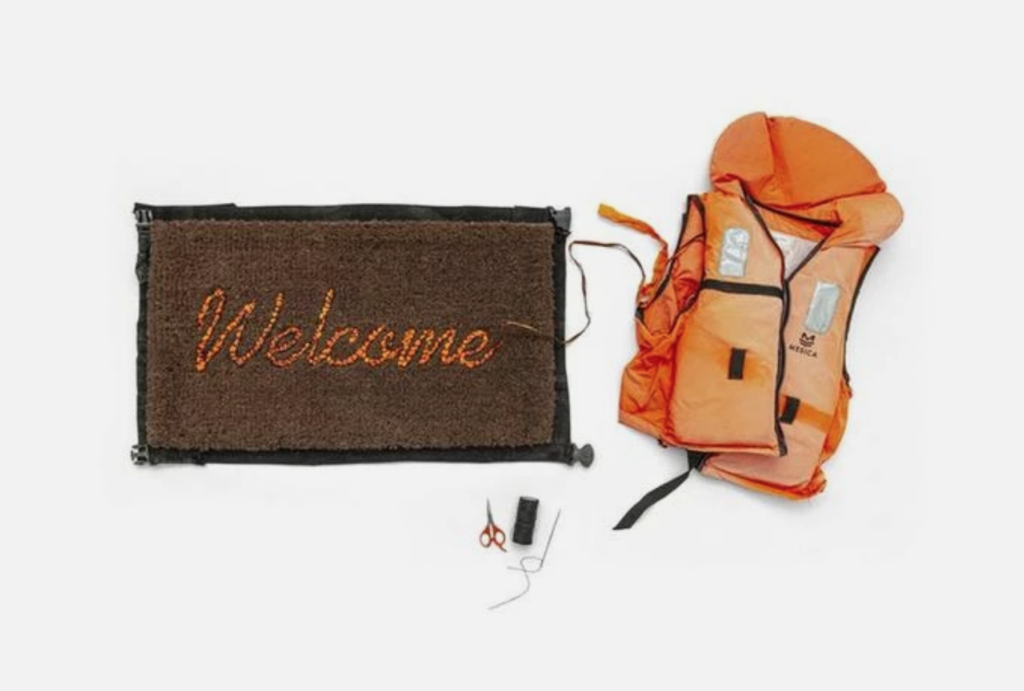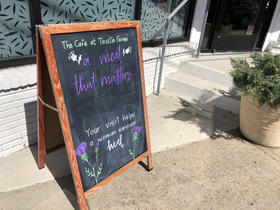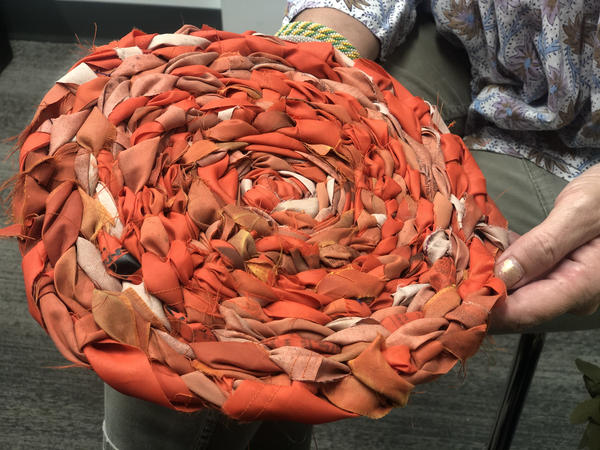
On Charlotte Avenue, there’s a bustling cafe serving lavender lattes and stacked egg sandwiches.
The Café at Thistle Farms is a space filled with cheery conversations, the gentle clinking of silverware against plates and, quieter, the sound of survival.
“We started 23 years ago, just wanting to offer housing, sanctuary and resources to women who are coming off the streets and out of prison,” said Becca Stevens, the founder and CEO of Thistle Farms. 
The Nashville nonprofit is now one of the largest social justice enterprises for women survivors in the U.S. The workers at the café are graduates of the program that now helps women leave prostitution, trafficking, addiction and abuse. And, its work has been featured in everything from the New York Times to People Magazine.
But, it’s not just helping women here.
“We’re in 20 countries now,” Stevens said. “But, one of those groups, about two and a half years ago, was a group of women who are survivors of the horrible war and genocide in Syria.”
Like many Americans, Stevens first became aware of the magnitude of the Syrian refugee crisis through a number of documentaries released on streaming services a few years ago. As an Episcopal priest and a sex abuse survivor herself, both her own story and her faith drove Stevens off her couch and across the globe.
“In April of 2017, a group of seven of us from Thistle Farms went to the refugee camp in Greece,” Stevens said. “And, we wanted to start weaving the life vests — those horrible signs of trauma — and weave them along with the blankets the women received when they landed.”
The resulting welcome mats are now made by a spin-off of Thistle Farms, called Love Welcomes. The new nonprofit is headed by one of that original group of seven, Abi Hewitt.
“So then, about a year ago,” Stevens said, “Abi started some conversations with Banksy.”
Yeah, you read that right. Thistle Farms and Love Welcomes managed to track down the elusive and enthralling Banksy. He’s known for his distinct graffiti style and for critiquing the very art world he runs adjacent to, in works like his film, “Exit Through the Gift Shop.” Most recently, Banksy made headlines for shredding his own million-dollar painting moments after it was sold. And, yet, Love Welcomes convinced him to work together.
So, how do you start a conversation with an anonymous artist?
“Yeah, it’s difficult, and I can’t answer any of that,” Stevens said, laughing.
Right now, the mats the women are making are a traditional, almost solid-colored weave of alternating vertical and horizontal strips.
“Now, Banksy’s mat is like a really rough, more fibrous welcome mat,” Stevens said. “It’s done completely different.”
Banksy’s design is similar to the typical hay-like mat you’d see in a social media ad — scripty font in the center and all. But, this one says “Welcome” in bright orange cursive, the letters formed from refugees’ life vests. The black edging is made of the buckles and straps that held the vest to a refugee’s body as they crossed into the vast unknown.
Banksy will be teaching the women at the camp in Greece how to make his style themselves and displaying the mat design at his popup shop in London.
“I think, in some ways, it gives these projects from Thistle Farms and Love Welcomes some real street cred,” Stevens said.
As Thistle Farms continues expanding globally, these mats tell the surprising story of how interwoven the refugee crisis is with international human trafficking.
It’s a term that Laurence Hart, the director of the International Organization for Migration, says can be confusing.
“A trafficked person is someone, which is paying someone to take him or her from point A to B, but then gets documents, especially their passport, confiscated and, then, ends up allegedly having to repay the cost of the travel by providing service, which can be, at worst, sexual exploitation but can be other forms of forced labor,” Hart said.
The UN-related organization mostly studies migration across the central Mediterranean, but Hart says the women refugees who are headed all over Europe are left vulnerable to being trafficked.
And, he says, the problem is not likely to go away any time soon.
“I would say that in the last five years, I think the percentage of women arriving — their percentage remain pretty stable,” Hart said.
Love Welcomes hopes its new design will continue raising awareness of the crisis. The mats will be on sale soon, and 100 percent of the proceeds will go back to the women who made them.


